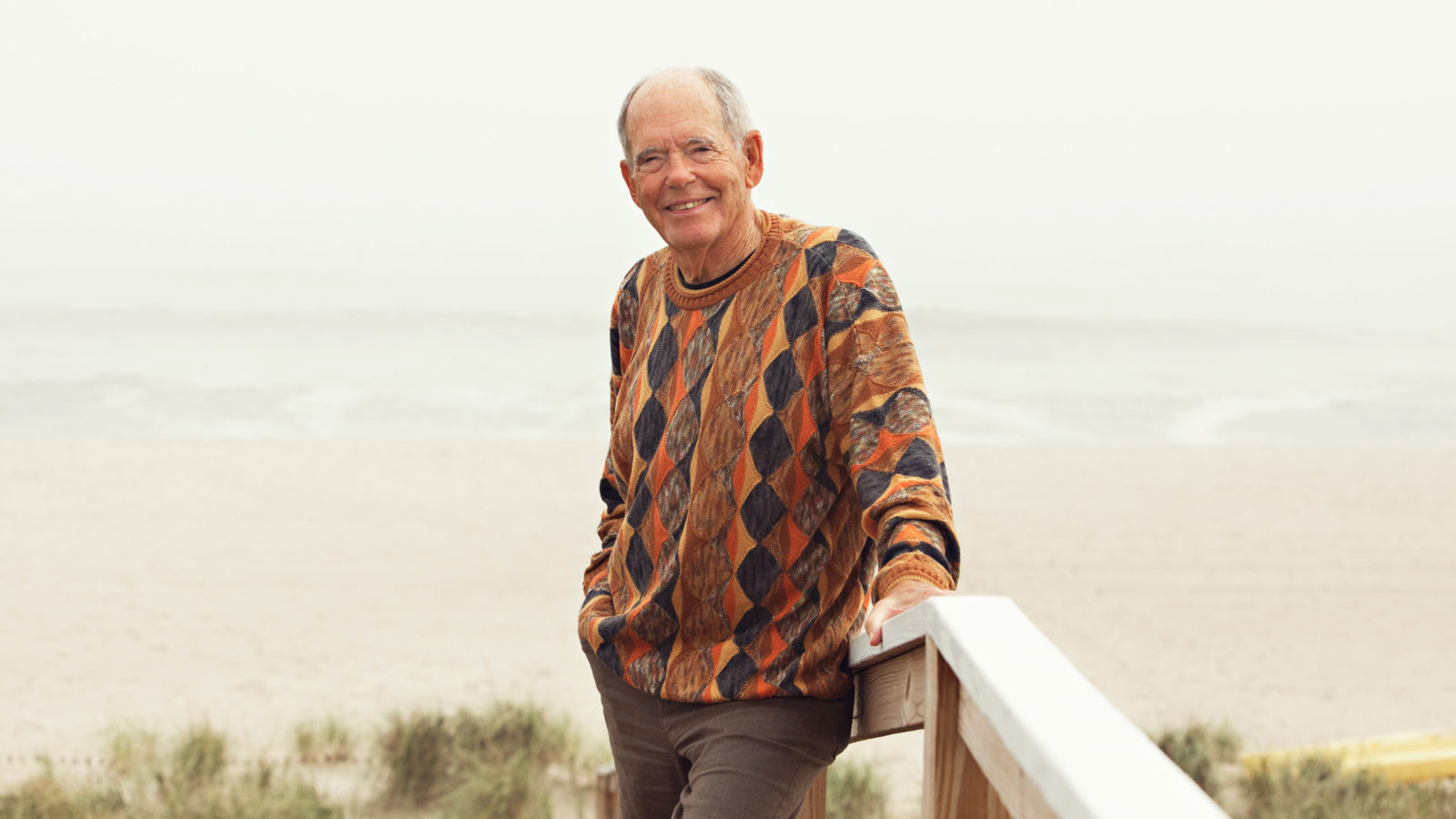Richard Adelmann’s fellowship fund is helping Williston recruit and retain new faculty of color
As an accountant with decades of experience solving financial problems for corporate America, Richard Adelmann ’61 brings a considerable skill set to his other passion: finding innovative solutions to social inequity. Serving on the board of a New York housing charity, he once helped implement what he calls “a very creative, complicated concept” that used federal, state, and private funding to help first-time homeowners buy duplexes, with the second unit rented to agency-supported homeless families. On other occasions, his approach was more direct: When local social service agencies could not secure housing for a homeless family he had befriended, Richard went ahead and bought a house for them to live in. “It was simply an intolerable situation,” he explained at a 2006 Williston ceremony honoring him for his community service work. “And I had the resources to fix it.”
And now, Williston itself is benefitting from Adelmann’s financial ingenuity and commitment to social justice. Eight years ago, he helped conceive and fund a program to recruit and retain new faculty of color for the school. “Williston has done a decent job of diversifying the student body,” he explains, “but students turn over every four years, and the faculty turns over every 25 to 40 years. So how do we fix that?” Adelmann’s solution was to fund a fellowship that provides the salary for a promising new teacher of color. So far, five Williston faculty have benefitted from the program (this year’s Adelmann Fellow is Alexia Ildefonso), and Adelmann’s hope is that it will become a model for other schools and colleges.
Adelmann transferred to Williston from the public schools of Montclair, New Jersey, having fallen behind his peers due to an illness and “maturity issues.” Arriving in the middle of ninth grade, he blossomed, he says. “It was just the right place at the right time for me.” After Williston he earned a degree in economics at Haverford College, then an MBA in accounting at Rutgers. His academic achievements are all the more remarkable in light of what he now recognizes as his undiagnosed dyslexia. “I can’t add a column of figures,” he notes, “so I wrote accounting policies and procedures. I don’t look at it as a disability. It just made school very hard.”
After Rutgers, newly married to his first wife, Penelope, Adelmann enlisted as an officer in the Air Force rather than take his chances in the Vietnam draft. He served in Utah, doing procurement, teaching accounting on the side as an adjunct professor at Brigham Young University. After returning to New York, he spent five years at a Big Eight accounting firm before being hired as director of accounting policies for PepsiCo. He later became director of accounting policies at American Smelting and Refining. Penelope, meanwhile, was focused on her own career in finance, achieving success as a Wall Street analyst for a number of prominent firms. But something was missing, Adelmann notes. The couple did not have any children, and “that was always a deficit that I felt.”
And so Adelmann began volunteering, first as a Boy Scout leader (he had been an Eagle Scout himself) and later at the Children’s Village, a New York residential facility for abused and at-risk boys. After Penelope died unexpectedly in 2000, Adelmann met Lucille, a former special education teacher, who began accompanying him on his volunteering visits. Over the next eight years, the couple, who were married in 2001, would spend every Saturday at the Village, driving the 100 miles in a minivan bought specifically so they could take the boys off-campus for bowling, swimming, zoo visits, and other needed diversions. “It was just glorious,” says Adelmann. “We were grandma and grandpa on the weekends. We were loved and we showed them they were lovable.”
Today, Adelmann and Lucille live in Mantoloking, New Jersey, and continue their social activism through Interfaith-RISE in New Brunswick, a multifaith organization that advocates for and assists refugees and immigrants. The volunteer work is the couple’s way of trying “to relieve some of the pain that’s being spread around the world,” explains Adelmann. “We collect furniture and do painting. We wash windows, and we move families in and out, setting up kitchens and buying the first round of refrigerator fillings. And we teach English as a second language.” Prior to the COVID-19 pandemic, he and Lucille were making the hour drive to volunteer three times a week, and were considering buying a condominium in the area so they could be closer to the community. “That’s how we plan to spend our final years,” he says. “And hopefully there are 10 or 15 more.”
Assessing Williston, Adelmann hopes his support for diversity through the Adelmann Fellowship Fund will inspire others to take action, particularly “we white guys who were born on third base and think we hit home runs, and have no clue as to how much of an advantage we have.” Just as he has used his own financial creativity over the years, he recognizes “other people will have their own creative ideas about how to give back, how to solve problems, and will have the resources to make some of it happen.” Ultimately, he sees his work as planting a seed, hoping others will say, “If Dick Adelmann can do that, I can do it too,” he says. “We can work through Williston to make this a better world. And that’s all we’re here on the planet for.”

